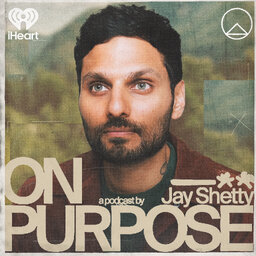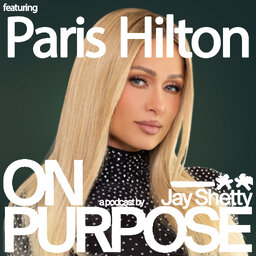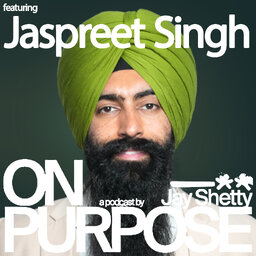Ray Dalio ON: Principles for Making Better Decisions & How to Strengthen Relationships for Long-Term Success
Today, I am talking to a returning guest and good friend, Ray Dalio. Ray is the founder and co-chairman of Bridgewater Associates, which, over the last forty years, has become the largest and best performing hedge fund in the world. He is the author of #1 New York Times Bestseller and #1 Amazon Business Book of the Year, Principles. Dalio has appeared on the Time 100 list of the most influential people in the world as well as the Bloomberg Markets list of the 50 most influential people. He lives with his family in Connecticut.
Ray genuinely shares the deepness of thoughts and what is his views on passing on your principles to others and picking up theirs and learn from it, the unappreciated value of journaling, knowing the right approach to having better relationships through thoughtful disagreements, the lessons we can learn from history, and the three things that mainly influence us and our society. We also exchange thoughts on asking approval and validation from others, how we react to others out of our emotional state, and how we can be of service to the world.
This episode was filmed at Soho Works: 10 Jay Street.
What We Discuss:
- 00:00:00 Intro
- 00:03:00 The first time you fear meeting someone
- 00:04:17 How did you develop clarity?
- 00:08:13 The smartness of your move determines the outcome
- 00:10:55 When did you start journaling?
- 00:18:19 The arc of life
- 00:21:08 The three people you must have in your life
- 00:25:12 The biggest problem of our society
- 00:29:50 How to win the debate of life
- 00:32:20 Looking at the sequence of discovering the truth
- 00:38:03 Three big things that influence us
- 00:47:00 The typical cycle for a new system
- 00:49:16 It’s more human nature than the system
- 00:57:26 Producing a reaction that becomes instinctual
- 01:03:36 Four important decisions we make in life
- 01:10:25 How do you approach money?
- 01:14:27 Don’t worry so much about the approval of others
- 01:20:27 Three practices of successful relationships
- 01:25:08 How do we serve the world?
- 01:27:56 What’s your view of love?
Episode Resources
- Ray Dalio | Books
- Ray Dalio | LinkedIn
- Ray Dalio | Twitter
- Ray Dalio | Instagram
- Bridgewater
Do you want to meditate daily with me? Go to go.calm.com/onpurpose to get 40% off a Calm Premium Membership. Experience the Daily Jay. Only on Calm
Want to be a Jay Shetty Certified Life Coach? Get the Digital Guide and Workbook from Jay Shetty
https://jayshettypurpose.com/fb-getting-started-as-a-life-coach-podcast/
In 1 playlist(s)
On Purpose with Jay Shetty
My name is Jay Shetty, and my purpose is to make wisdom go viral. I’m fortunate to have fascinating …Social links
Follow podcast
Recent clips

How to Fall in Love Without Losing Yourself This Year (5 Rules to Avoid Getting Stuck in the Wrong Relationship)
21:47

PARIS HILTON: The REAL Story Beyond the Headlines, Fame, Misconceptions, and The Journey to FINALLY Reclaim Her Narrative
1:07:01

Jaspreet Singh: Why Most People Stay Broke (Follow THIS 7-Step System to FINALLY Stop Living Paycheck-to-Paycheck!)
1:19:03
 On Purpose with Jay Shetty
On Purpose with Jay Shetty